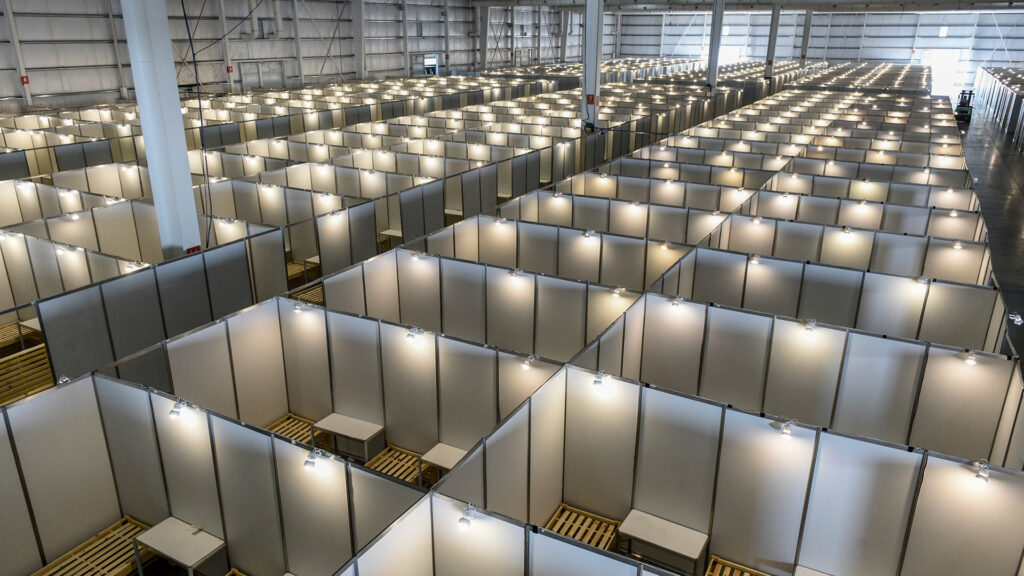In the face of the first wave of the COVID-19 pandemic in argentina it was established in Tecnópolis, in the periphery of the City of Buenos Aires, the biggest Sanitary Park in the entire country, slated for isolation and containment of people who tested positive for the disease. During this process, m7red was called to design and organize the establishment in summary time of an information and registry system that was both simple and flexible, and that could communicate the different groups and technical and sanitary protocols that composed the functioning of the site. Given the possibility that such protocols may easily fall in repressive dynamics, the group pondered initially its participation in a project of such high levels of complexity and uncertainty.
In order to be able to encompass this uncertainty it was thought how to articulate spatial and economically the neighborhoods from which the patients originated; using the complex scenario methodology to modulate and systematize the social distances required between the inhabitants of the center and its surrounding neighborhoods, the conclusion was reached that uncertainty requires accepting ambiguity. A single problem doesn’t exist, neither does a single knowledge. When a complex problem exists, it’s not always possible to resolve it: sometimes it’s only possible to compose it and to articulate a plurality of perspectives.
This learning process took place alongside the managers of the sanitary park, composed as much by community leaders from the surrounding neighborhoods and experts, as by military forces and patients. Thanks to the methodology proposed by m7red the site shifted from a securitive and military control of the park, something between a prison and a hospital, to a decision making process that happened through an extended community of peers.
The pandemic and exceptional situation we have lived in 2020 have opened a new dimension: the state of formalized processes and knowledges’ uncertainty has become evident and the resolution of urgent problems in which there is much at stake emerges much further than usual normative frames and mental schemas that reigned just a few months before the juncture that was the pandemic.
The case of the Tecnópolis Sanitary Park is a witness case of the great value to be built in a high complexity problem for which there was no knowledge or procedure proven to be resolutive in its effectiveness. This constitutes a dynamic and situated process, a process of trial and error, readjustment and real time coordination, an ecosystem in evolution. Development in the time of the COVID-29 pandemic is determined by uncertainty, so the previous knowledges and experiences can be utilized but exploratively, and fragmentarily according to its capacity and efficacy depending on changing circumstances.

